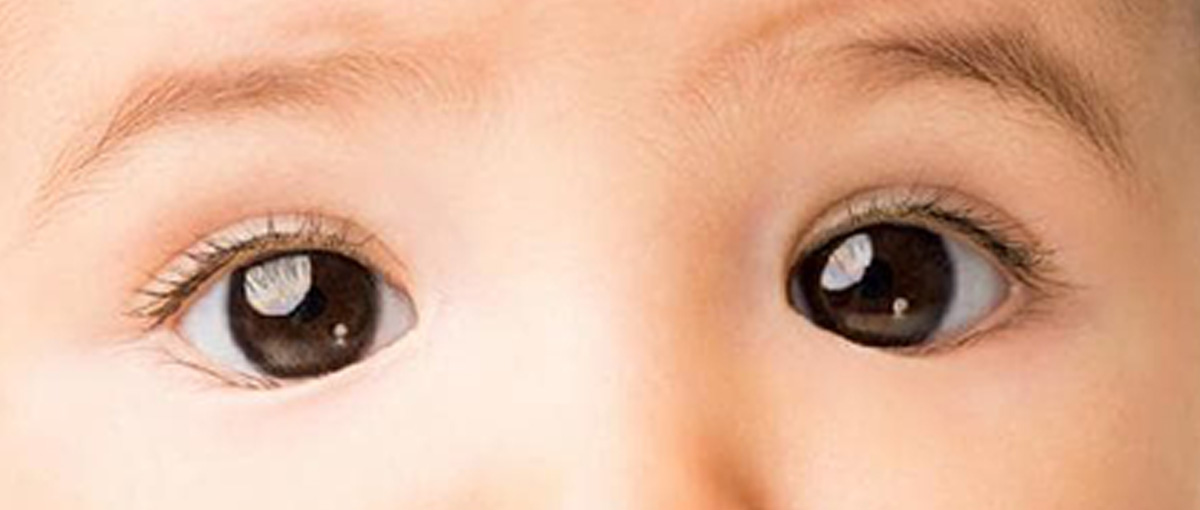Simple ways to protect your child's eyes
It is alarming to see the rising number of children wearing spectacles these days. The digital era is meant to simplify our lives but too many inventions have taken a toll on the health of the children. We prominently see how dependent our kids have become on gadgets be it for watching television, scouring the internet on a computer, playing games on mobile phones or maybe watching various series. Along with, the dependency on gadgets, the food habits have drastically changed.
Nowadays children and adolescents have become more susceptible to eyesight-related problems. However, this increasing problem can be curbed by timely measures and precautions.
We’ve got you some tips on how you as a parent can encourage our kids to be full of wonder, curiosity, inquisitiveness, motivation to find out how things work and why, and to appreciate the amazing complexity of our ever growing, ever evolving world because of the term “SCIENCE” !
Observe a proper diet
Maintaining your child’s eyesight starts with constantly observing a proper diet. Food groups rich in preserving their eyes should be included in the meals from time to time. Food items that are great sources of omega-3 fatty acids help maintain in lubricating the child’s eyes and prevents them from dry eye syndrome. Leafy green vegetables contain high levels of lutein and zeaxanthin, these carotenoids have potent antioxidative properties that assist in freeing radicals in the eyes. Eating Vitamin A-rich eggs help in preventing night blindness and dry eyes. Doctors recommend carrots that contain high levels of beta-carotene, which maintains your child’s ocular structural integrity and promotes healthy functioning of their eye components.
Check vision annually
Eye care professionals recommend a comprehensive eye checkup annually or once in two years depending on your age, risk factors whether your child already wears specs or not. Furthermore, if your child identifies any issue while reading or while seeing then you should visit a pediatric ophthalmologist without delays.
Limit the screen time
Parents should be cautious of the screen time of their children. Longer screen-time has been linked with issues like shorter sleep duration, decreased sleep efficiency, and longer sleep onset delay. Parents can curb these issues by cutting off the duration by keeping away from phones while eating time, pre-sleep hours etc.
Encourage daily outdoor activities
Nowadays children are spending less time outdoors. Parents can include activities that include sports activities, swimming, treks, free play with friends and neighbors, family trips, gardening activities or even setting up a spot outside to do homework. While the goal is to have our children’s eyes exposed to more natural sunlight, it is still important that we protect them with sunglasses and sunscreen.
Increase light exposure indoors
If the weather is not favorable to head outdoors, parents may consider using daylight-spectrum indoor lights to minimize myopia. These are the same types of lights used to address seasonal affective disorder (SAD).
Tell us how you are protecting you child's eyes and keeping their eyesight sharp!
Observe a proper diet
Maintaining your child’s eyesight starts with constantly observing a proper diet. Food groups rich in preserving their eyes should be included in the meals from time to time. Food items that are great sources of omega-3 fatty acids help maintain in lubricating the child’s eyes and prevents them from dry eye syndrome. Leafy green vegetables contain high levels of lutein and zeaxanthin, these carotenoids have potent antioxidative properties that assist in freeing radicals in the eyes. Eating Vitamin A-rich eggs help in preventing night blindness and dry eyes. Doctors recommend carrots that contain high levels of beta-carotene, which maintains your child’s ocular structural integrity and promotes healthy functioning of their eye components.
Check vision annually
Eye care professionals recommend a comprehensive eye checkup annually or once in two years depending on your age, risk factors whether your child already wears specs or not. Furthermore, if your child identifies any issue while reading or while seeing then you should visit a pediatric ophthalmologist without delays.
Limit the screen time
Parents should be cautious of the screen time of their children. Longer screen-time has been linked with issues like shorter sleep duration, decreased sleep efficiency, and longer sleep onset delay. Parents can curb these issues by cutting off the duration by keeping away from phones while eating time, pre-sleep hours etc.
Encourage daily outdoor activities
Nowadays children are spending less time outdoors. Parents can include activities that include sports activities, swimming, treks, free play with friends and neighbors, family trips, gardening activities or even setting up a spot outside to do homework. While the goal is to have our children’s eyes exposed to more natural sunlight, it is still important that we protect them with sunglasses and sunscreen.
Increase light exposure indoors
If the weather is not favorable to head outdoors, parents may consider using daylight-spectrum indoor lights to minimize myopia. These are the same types of lights used to address seasonal affective disorder (SAD).
Tell us how you are protecting you child's eyes and keeping their eyesight sharp!

